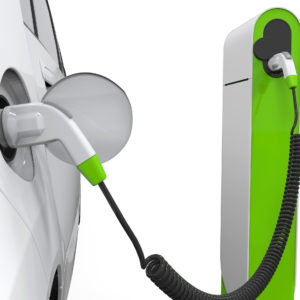A pair of powerful senators, Debbie Stabenow, D-Michigan, and Lamar Alexander, R-Tennessee, and their allies in the House are pushing to expand costly and ineffective federal subsidies for electric vehicles (EVs).
At issue is the EV tax credit, which offers consumers a subsidy of up to $7,500 off the price of a qualifying EV. Since 2009, the EV credit has been set to gradually phase-out for manufacturers that exceed 200,000 vehicle sales in the United States. The tax credit was meant to help the fledgling EV industry gain its footing, not provide a permanent crutch.
But with General Motors and Tesla having already reached the 200,000 threshold, and other companies approaching the cap as well, some lawmakers are pushing to remove the 200,000 vehicle limit and open the door to a substantial increase in taxpayer-funded subsidies for large electric vehicle manufacturers and the wealthy consumers who make up the vast majority of electric car buyers.
Removing the cap on the EV credit would cost a staggering $95 billion over the next 15 years, according to a recent study commissioned by the Institute for Energy Research, a substantial increase over the credit’s already-hefty costs, estimated at $7.5 billion from 2018 to 2022.
Uncapping the credit would translate to a reduction in average household income of about $610 between 2020 and 2035 and saddle electric utility ratepayers with $3.6 billion in additional costs related to energy production and charging infrastructure needed to support the increase in EVs.
Even more troubling are the distributional impacts of these higher costs across the population. Of the 57,066 individual taxpayers who received the credit in 2016, 78 percent had at least a six-figure income and 7 percent reported more than $1 million in income. Tesla’s customers have an average household income of $293,200. By contrast, less than 1 percent of all EV credits went to households earning less than $50,000 in 2014, which means that about half of Americans receive virtually no benefit from the credit.
Research has also found that uncapping the credit would reduce total gasoline consumption by only 0.8 percent by 2035. By contrast, improvements in the fuel economy of internal combustion vehicles are projected to reduce gasoline consumption by 25 percent over the same period. When put in perspective, the effect of expanding the EV credit on fuel consumption is no more than a rounding error.
This calls into question the core argument behind the EV tax credit which, according to its supporters, is that electric “vehicles are critical to lowering our emissions and limiting climate change.” Yet an analysis by the Manhattan Institute found that EVs will reduce energy-related U.S. carbon-dioxide emissions by less than 1 percent by 2050. “That reduction will have no measurable impact on world climate — and thus the economic value of (carbon-dioxide) emissions reductions associated with (electric vehicles) is effectively zero,” writes the study’s author.
The head of the International Energy Agency, Fatih Birol, agrees. “Even if there were 300 million (electric cars) with the current power generation system, the impact in terms of (carbon-dioxide) emissions is less than 1 percent — nothing,” he said earlier this year. And 300 million EVs is still far off — the IEA predicts a global fleet of only 125 million EVs by 2030, meaning that even the minuscule emissions reductions Birol cites are decades away from fruition.
While continuing to subsidize EVs would have virtually zero effect on global climate trends, the impact on everyday Americans would be far from negligible. Instead of expanding this failed policy, Congress should end it.

